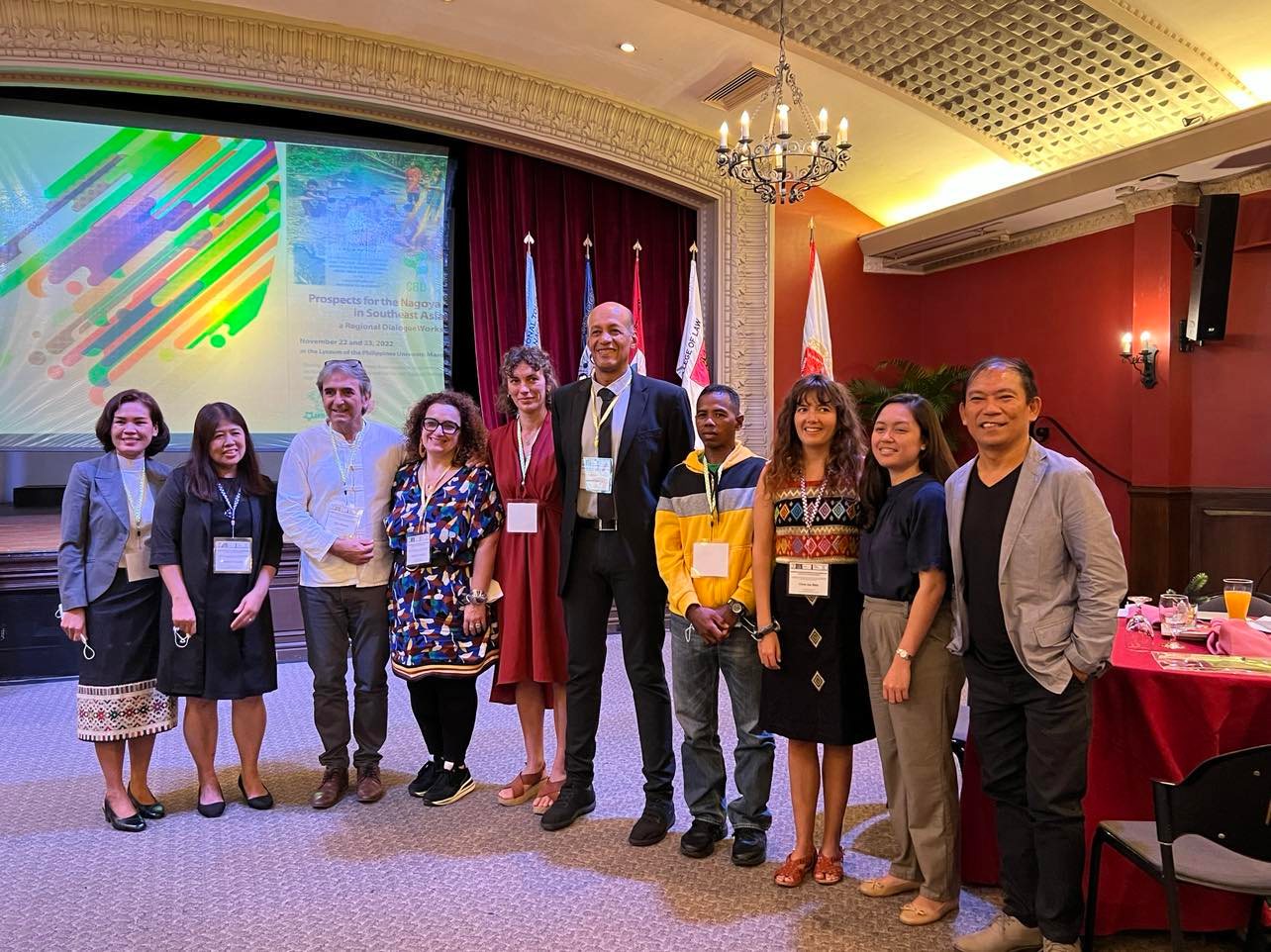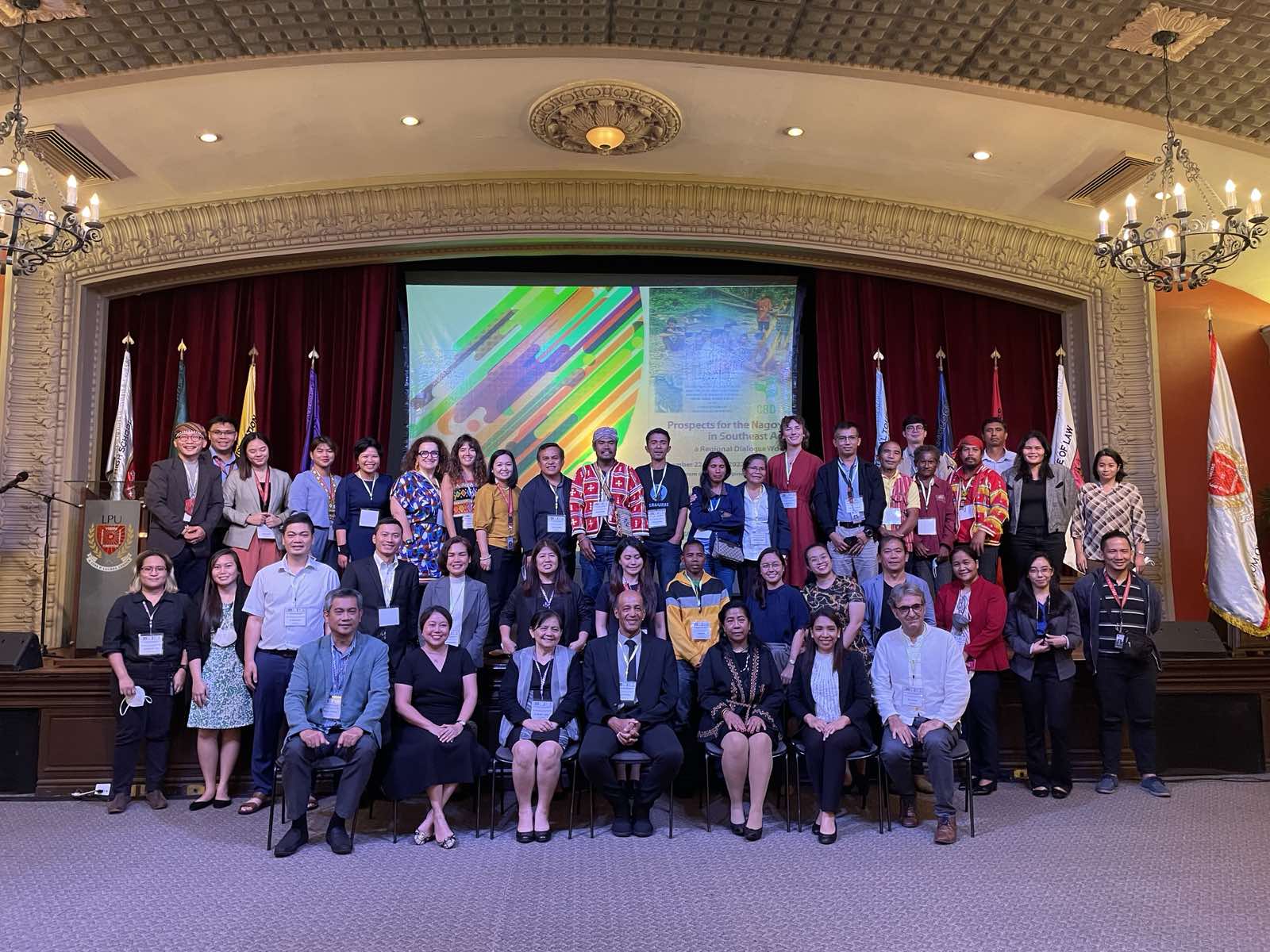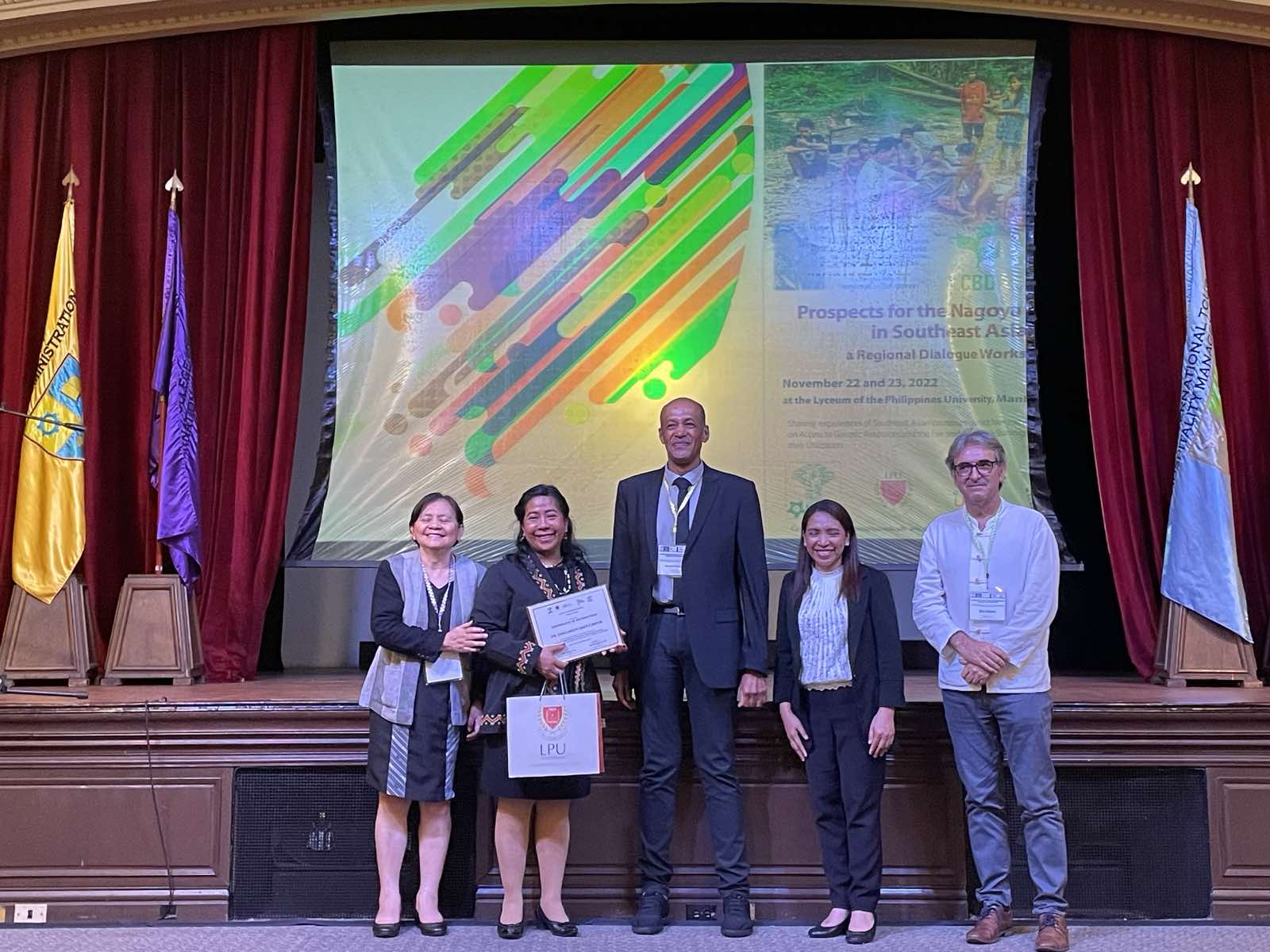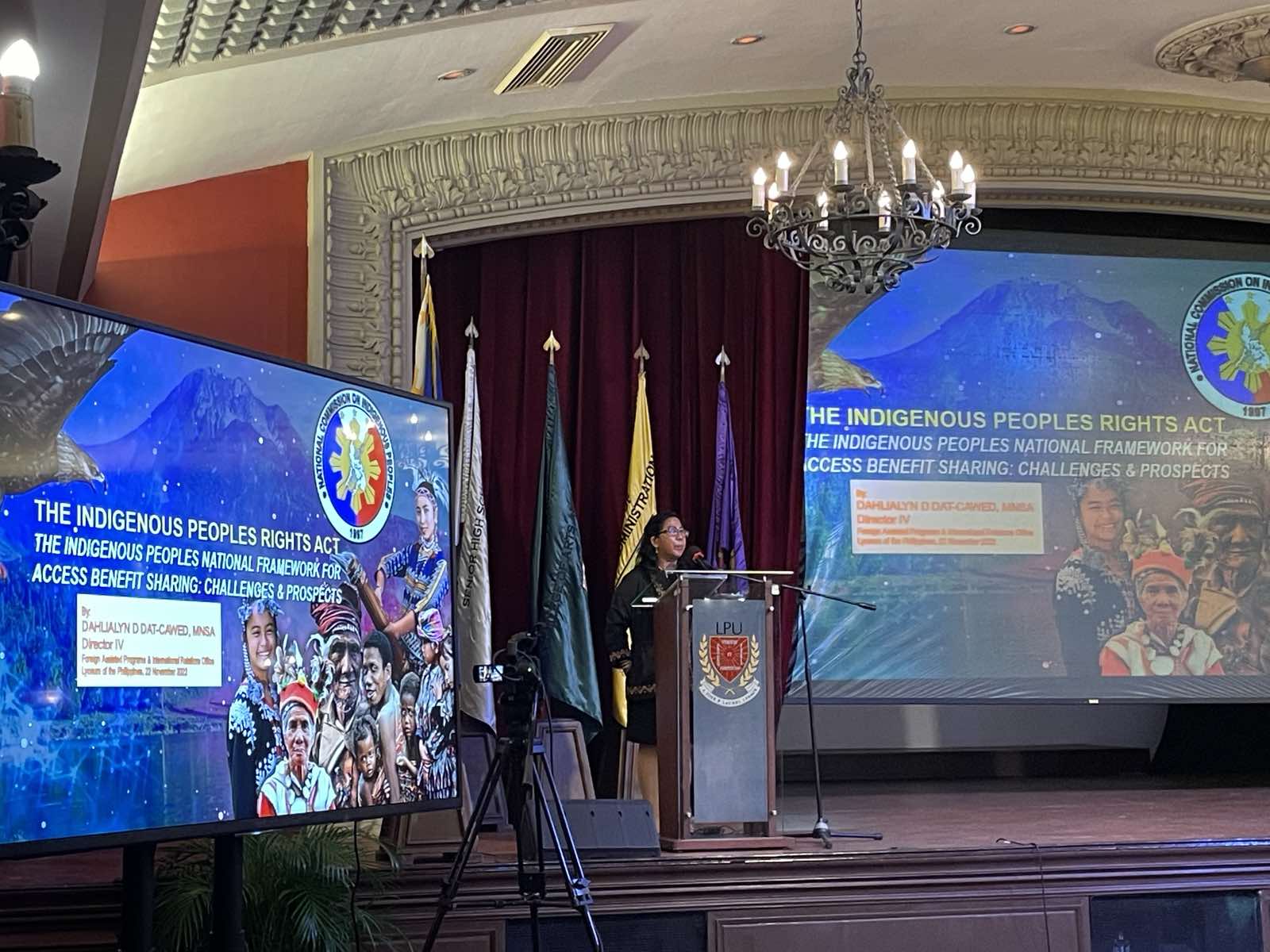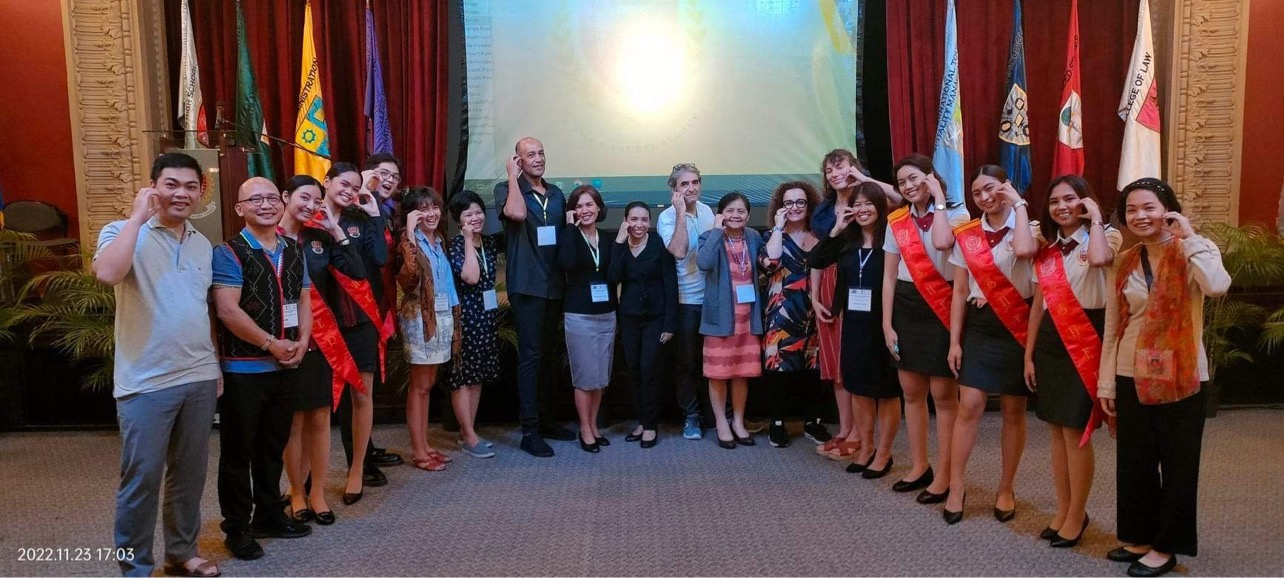Prospects for the Nagoya Protocol in Southeast Asia: A Regional Dialogue Workshop
The regional training workshop “Prospects for the Nagoya Protocol in Southeast Asia”, organized by the IRD Representation in Vietnam and Laos, the French embassy in the Philippines, and the Lyceum of the Philippines University was held last Nov 22-23,2022 at the JPL Hall of freedom, LPU Manila.
The program started with welcome remarks from Dr. Marilyn Ngales, the Program Director of Indigenous Studies and Dean of the College of Arts and Sciences, followed by messages from Mrs. Jennifer D. Tucpi, the OIC for Academic Affairs Lyceum of the Philippines University-Manila, and Her Excellency Michèle Boccoz, the Ambassador of the French Republic to the Philippines.
Present at the event were the members of Filipino Indigenous People all over the country, IRD Representatives from the following countries:
LAOS: Eric Deharo-IRD Lao PDR Moderator, Somphavanh Radavanh- ABS Representative
FRANCE: Laurie Casalot, Chloé Desmots, and Edmond Doubias
VIETNAM: Dr. Dao Thai Ha- ABS Representative,
together with Philippine Local Government Units Officials Dr. Theresa Mundita S. Lim, the Executive Director of ASEAN Center for Biodiversity, Philippines, Atty. Elpidio Peria, the Legal Adviser DENR-BMB, Philippines, Mr. John Francisco A. Pontillas, EnP. Chief Planning Officer of Palawan Council for Sustainable Development Staff (PCSDS), Dahlialyn Daet- Cawed, Ph.D. the OIC-Director of Foreign Assisted Programs and International Relations Office National Commission on Indigenous People.
The event was held to share experiences and insights from Southeast Asian Countries which have ratified the Nagoya Protocol on Access to Genetic Resources and the Fair Equitable Sharing of Benefits Arising from their utilization. The Nagoya Protocol on Access to Genetic Resources and the Fair and Equitable Sharing of Benefits Arising from their Utilization (also known as the Nagoya Protocol) is a global agreement that implements the access and benefit-sharing obligations of the Convention on Biological Diversity (CBD).
Genetic resources from plants, animals, and microorganisms are increasingly valuable in the development of specialty enzymes, enhanced genes, or small molecules. These can be used in many areas, including crop protection, drug development, the production of specialized chemicals, or in industrial processing. The fair and equitable sharing of these benefits is a priority for biodiversity-rich countries and the international community. The Nagoya Protocol was adopted by the CBD in Nagoya, Japan in October 2010.
